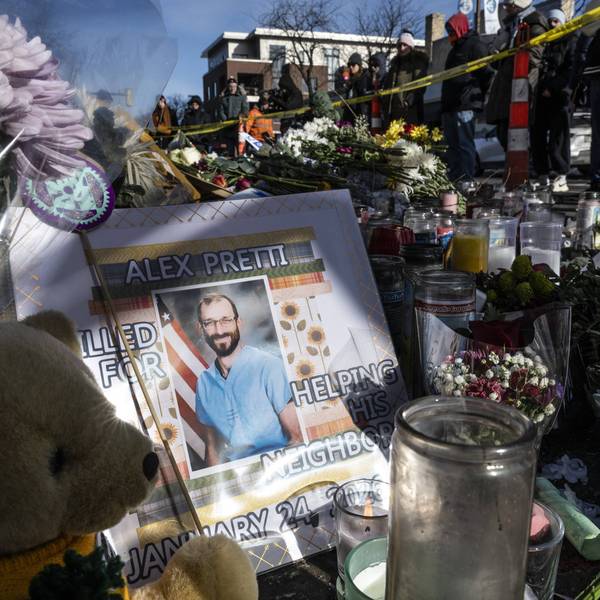The death penalty made a rare appearance on the presidential campaign trail last week with Hillary Rodham Clinton saying she backs it "because I do think there are certain egregious cases that still deserve the consideration of the death penalty, but I'd like to see those be very limited and rare, as opposed to what we've seen in most states."
There's the rub. How do we know with full certainty that someone is guilty of a "worst of the worst" crime?
There are many arguments against the death penalty, from the inherent immorality of allowing a state to kill its own citizens, to the arbitrary and inconsistent application depending on the race of the convicted killer, and the race of the victim (black killers of white victims get the death penalty in a disproportionate number of cases). Geography matters, too. According to a 2013 report by the Death Penalty Information Center, "2% of the counties in the U.S. have been responsible for the majority of cases leading to executions since 1976 .... [A]ll of the state executions since the death penalty was reinstated stem from cases in just 15% of the counties in the U.S. All of the 3,125 inmates on death row as of January 1, 2013 came from just 20% of the counties."
But another fundamental problem underscores the weakness of the "worst of the worst" reasoning that Clinton seems to embrace (her rivals for the Democratic presidential nomination, Vermont Sen. Bernie Sanders and former Maryland Gov. Martin O'Malley, both oppose capital punishment): We can't be sure that those convicted of the most heinous crimes are actually guilty.
Analyzing data compiled by the Death Penalty Information Center shows that since 1973 at least 156 people have been released from death row after being exonerated of the crime for which they were convicted, defined as acquitted, had all charges dismissed, or been granted a pardon based on evidence of innocence. So these aren't the oft-cited "technicalities," but either findings of innocence or the complete collapse of a prosecutor's case.
The racial breakdown of the exonerated is heavily weighted to African Americans, who accounted for 81, or 52%, of the exoneration cases, while whites accounted for 61, or 40%, of the exonerations. Latinos (12 cases) and "other" (one case) accounted for the rest.
But the disparity extends further. The 156 exonerated people spent an average of 11.4 years on death row. But wrongfully convicted whites spent an average of nine years on death row, compared with the average 13.5 years blacks spent before being set free.
So what is the "worst of the worst?" That's a judgment call, which is why even saving the death penalty for such cases is still an arbitrary act. For instance, "Green River Killer" Gary Ridgway admitted killing 48 people in Washington state and, in return for a life sentence, pledged to own up to other killings as evidence emerged. The prosecutors put verifying crimes (and guilt) above seeking the death penalty, which is an arbitrary decision.
But Henry McCollum and Leon Brown, brothers in North Carolina, had nothing to bargain with and, on the basis of their confessions to the 1983 rape and murder of 11-year-old Sabrina Buie, they received death sentences. In a later ruling in a different case about the constitutionality of lethal injections in executions, pro-death penalty Supreme Court Justice Antonin Scalia cited the "the case of the 11-year-old girl raped by four men and then killed by stuffing her panties down her throat. How enviable a quiet death by lethal injection compared with that!"
It was, indeed, a heinous crime. But McCollum and Brown didn't commit it, as DNA evidence revealed. The confessions, it turns out, were coerced (both men have intellectual disabilities), and investigators failed to follow up on clues that implicated another man who lived nearby, and who was later convicted of a similar rape-murder that occurred just a month after Sabrina's.
When you can't be sure that the justice system is convicting the guilty, how can you rely on it to determine who lives and dies?
Pro-death penalty activists argue that the problem with the absurdly expensive system is that it is too slow and cumbersome. But speeding things up just ensures that a higher percentage of the innocent will be executed. Of the 156 death row inmates exonerated since 1973, a full 22 served at least 20 years there before being cleared. The median years on death row was 10, which means half of those exonerated spent a decade awaiting execution before being freed. So how fast should we move to execute?
The "worst of the worst" sounds more and more like a description of the death penalty system than of the crimes for which it is supposed to be reserved.



